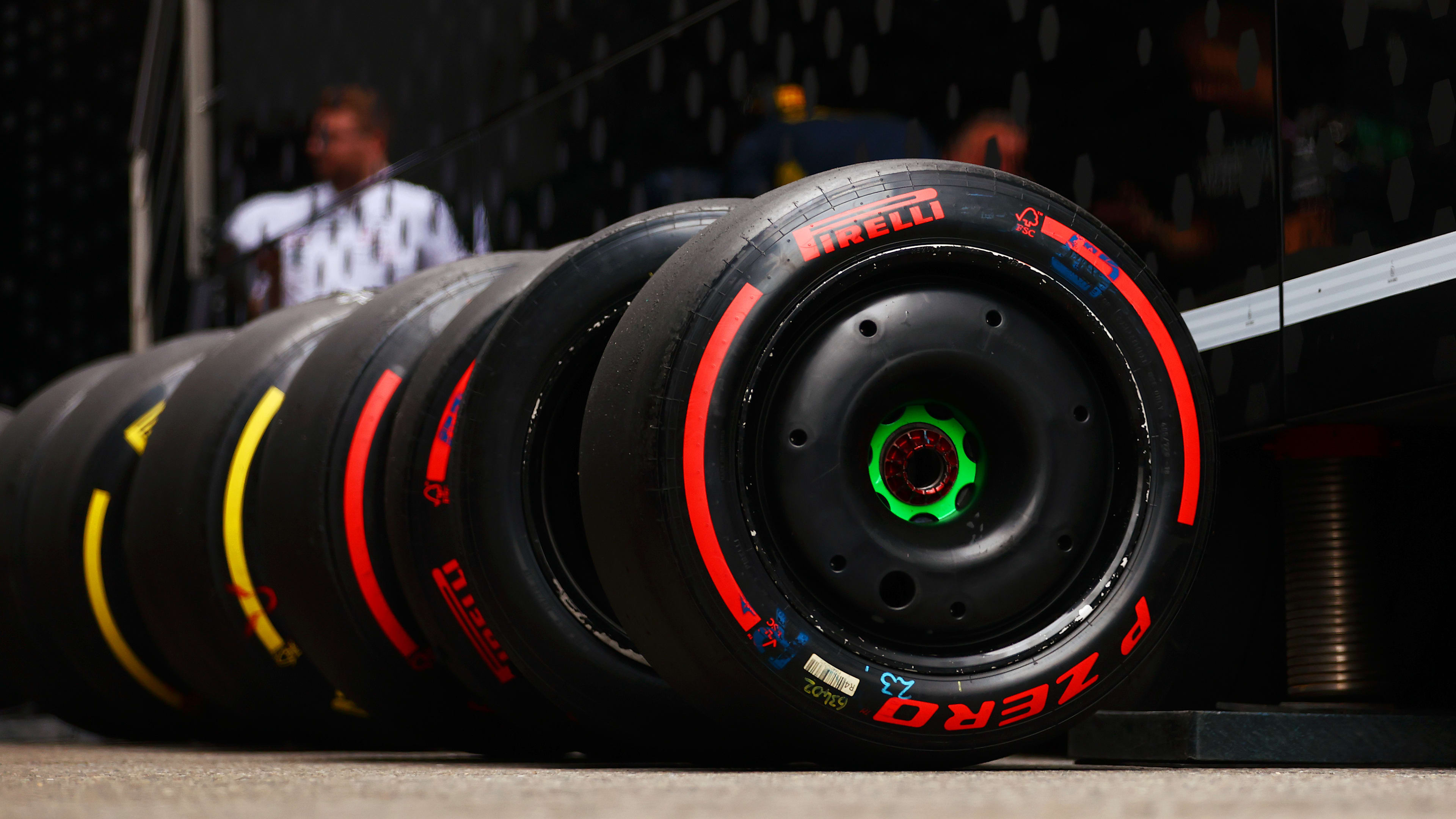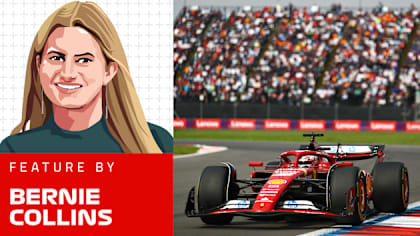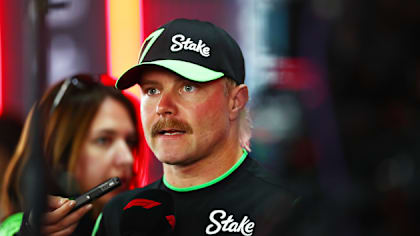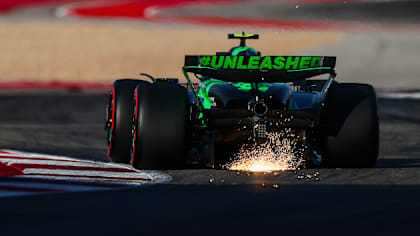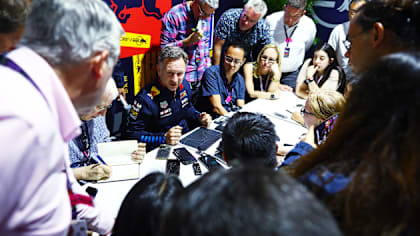1 / 3
Interview
Monisha Kaltenborn Q&A: Sauber must keep the faith
Sauber’s Adrian Sutil and Esteban Gutierrez both retired in Malaysia, the first time since 2011 that the team have ended a Grand Prix without a classified finisher. Team principal Monisha Kaltenborn says the Swiss squad should not lose heart however, and insists that Formula One racing has made the right decision to usher in a new era in 2014…
Q: Monisha, in 2014 everything is supposed to be better - more ecological, state-of-the-art technology. Is it really?
Monisha Kaltenborn: Yes it is better in my view. We have taken the right step. We have entered into a new area with changes in a dimension we have never seen before. If you take particularly the changes on the powertrain side, in my view Formula One had to go along with the changing times. With these changes we remain one of the best platforms in the world and can absolutely compete with events that might happen in a few years’ time. We simply have to adapt ourselves to what is going on around us.
If you see Formula One primarily as a sport then there is the emotional element to it - and if you see it as a platform to showcase strong messages then one of them is high-end technology, and we’ve reached that with the new powertrain. Here we have a high level of efficiency, and that is an important message to the consumer market. We are doing what we should be doing: showcasing the high-end of this technology. There will always be people who like changes and people who don’t, like everything in life. But in the case of the 2014 changes, we’ve taken the right step.
Q: How relevant does a sport have to be? Does any sport that reaches out to the masses need justifying?
MK: We have the opportunity to be - and we have to see that we are - attractive to sponsors, as we provide them with the right platform. Since we have some of the biggest key players in the sport, and want further parties and brands to join us, we have to go that way.
Q: Regarding the massive 2014 changes, so far it’s smiles all round at the Mercedes-powered teams, and long faces at the rest. As a small team using customer engines, how do you see the demands to be ‘road-car relevant’ when all it means for you is bigger bills?
MK: A small team’s perspective of course is a little bit different because we have to emphasise different factors. For us the costs are a major factor. From that perspective, yes, it makes even more difficult for us as the costs have been hyped up by this introduction. In hindsight you can always say that all this could have been done in a bit more of a customer team-friendly way - particularly on the costs - but now we have this situation.
The advantage that one engine manufacturer might have right now will be levelled out in due course. At least we can say from our manufacturer [Ferrari] that they are improving a lot. From a small team’s perspective you have to accept certain things. If we want manufacturers in here we have to accept their targets. Now we have to find a way to bring the costs down to a sensible level.
Q: The engine manufacturers who are behind will have to spend serious money to catch up. Will that make it more expensive for the customer teams? Will they pass the costs on to their clients?
MK: I only can speak for us and our supplier. We have a package - meaning that we receive the entire powertrain unit and the gearbox - and we have a long lasting relationship with them. The target is to work closely together. Sure we are limited in what we can do, but it is important - as we should have a steep learning curve - that we exchange whatever experience and data we are making to try and help, wherever we can in our limited capacity, to make the whole powertrain more competitive than it is now. We have to go through it together. I don’t know anything about higher costs for us.
Q: Sauber have changed Nico Hulkenberg for Adrian Sutil for 2014. How do you see that switch?
MK: I don’t think you should compare drivers in that way. Both are very different personalities. In the past we had discussions with Adrian a couple of times, and now it finally worked. It is very pleasant to work with him. Again the team can benefit from the way he works, the way he gives the input. But right now it is too early to say anything - we’re just past the second race. So far the preparations over the winter - the interaction with the team - were very good. He stays very close to the factory, and closeness is always important. Now we have to improve more on the performance side.
Q: But he is no Nico…
MK: No, his name is Adrian. Yes, Nico is a very talented driver, but Adrian has also his strengths. He is a very experienced driver, and that experience is very valuable in times of changes and alongside Esteban Gutierrez, who is only in his second year and still learning, I think it is a good combination.
Q: You have kept Esteban despite a lot of other options. Why?
MK: We wanted some continuity. The drivers are coming into F1 younger and younger every year, but what will always stay the same is that they need time. Nothing is going to make their learning curve quicker. And it is getting more and more of a luxury to give a driver that much time. We believe in Esteban. Yes he had a rough year in 2013, but you have to give a youngster time.
Q: What have you learned from Melbourne and Kuala Lumpur? Melbourne was so-so and Kuala Lumpur was a pretty bad weekend for Sauber…
MK: Melbourne was important because we finished with both cars and Kuala Lumpur a disappointment because we thought that we’d developed in the right direction. It was not meant to be. Nevertheless we will follow our route, as we believe in the end we will be successful. Now we will have to go through the data to see what the cause of our struggle was. We certainly have to do things on the chassis side, and we also have to see to the powertrain side. We have to work on both sides.
Q: Sauber have often been slow starters into the season and then improved over the months - is that also the plan this year?
MK: Absolutely. I hope it doesn’t take that long as we are pretty confident that we have identified where the issues are - hopefully.
Q: Is it fair to say that Sauber were struggling in 2013 on the financial side and that the extra costs for the new engine have not defused the situation? What is state of affairs?
MK: We managed last year to secure our deal with Telmex, which was an important step, and now we are taking it step by step. Not so much is visible now, but you can rest assured that a lot is going on in the background and we will hopefully be able to tell the public soon. I hope it will be an easier year than 2013 was.
YOU MIGHT ALSO LIKE
FeatureF1 Unlocked THE STRATEGIST: Did ‘idiot’ back markers cost Ferrari a 1-2 in Mexico?
News ‘At least we could fight’ – Bottas taking positives from Kick Sauber’s step forward in Mexico
News Sauber announce personnel changes amid restructure as Inaki Rueda joins following Ferrari departure
News Horner labels Verstappen penalties as ‘very harsh’ and calls for overtaking regulations to ‘get back to basics’
